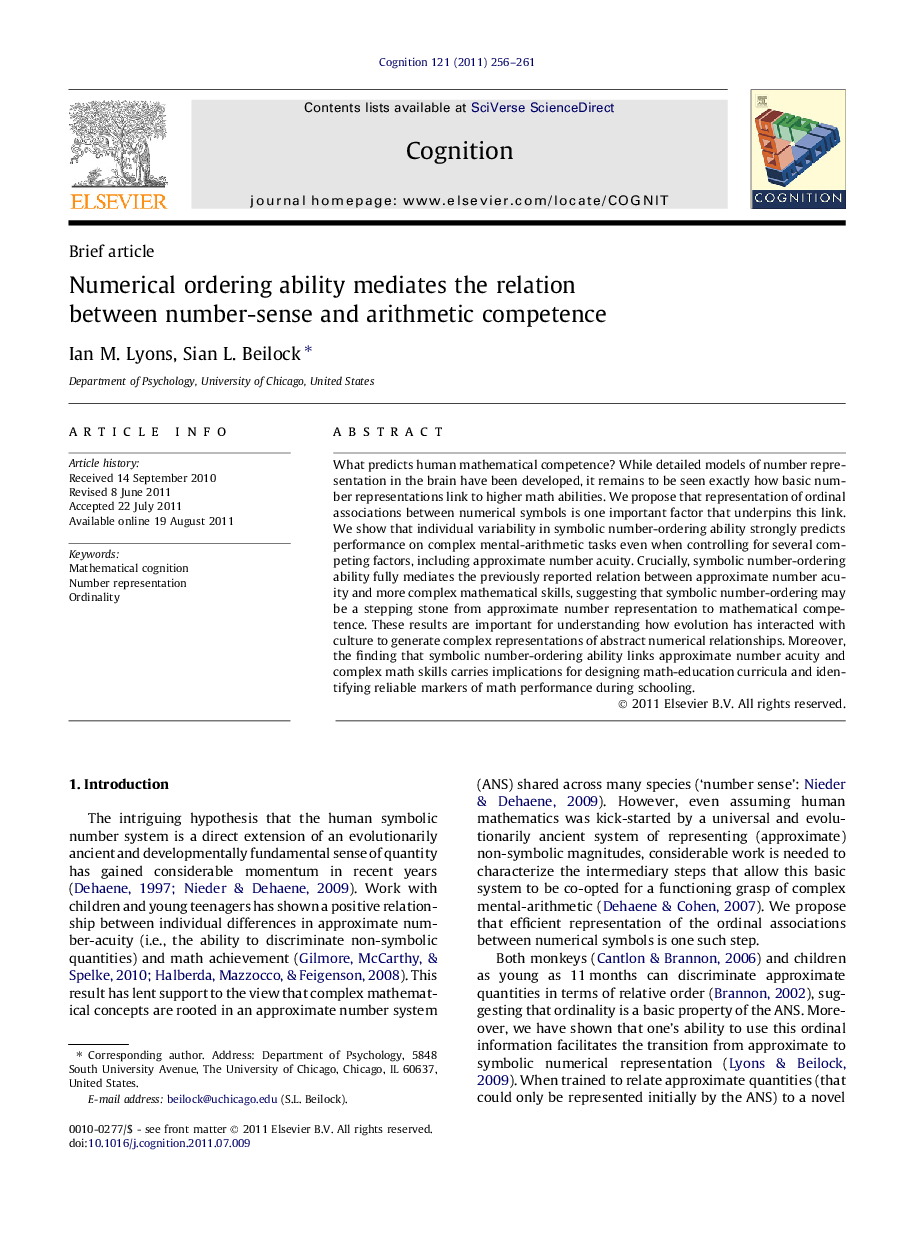| Article ID | Journal | Published Year | Pages | File Type |
|---|---|---|---|---|
| 926564 | Cognition | 2011 | 6 Pages |
What predicts human mathematical competence? While detailed models of number representation in the brain have been developed, it remains to be seen exactly how basic number representations link to higher math abilities. We propose that representation of ordinal associations between numerical symbols is one important factor that underpins this link. We show that individual variability in symbolic number-ordering ability strongly predicts performance on complex mental-arithmetic tasks even when controlling for several competing factors, including approximate number acuity. Crucially, symbolic number-ordering ability fully mediates the previously reported relation between approximate number acuity and more complex mathematical skills, suggesting that symbolic number-ordering may be a stepping stone from approximate number representation to mathematical competence. These results are important for understanding how evolution has interacted with culture to generate complex representations of abstract numerical relationships. Moreover, the finding that symbolic number-ordering ability links approximate number acuity and complex math skills carries implications for designing math-education curricula and identifying reliable markers of math performance during schooling.
► Approximate number acuity (ANS) predicts complex mental arithmetic ability in adults. ► This relation is mediated by symbolic number-ordering ability. ► The mediation effect is robust to several numerical and general cognitive factors. ► Associations between number-symbols may provide a stepping stone from ANS to math.
